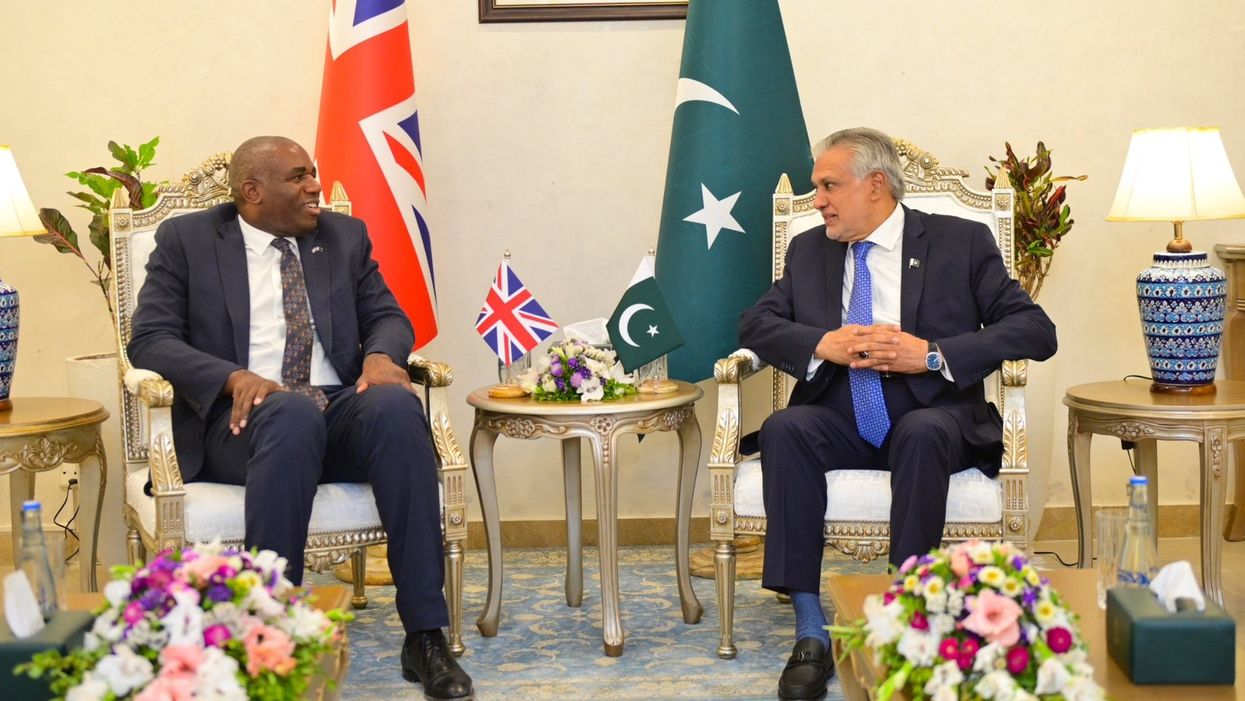UK foreign secretary David Lammy met his Pakistani counterpart Ishaq Dar in Islamabad on Friday, days after a major military escalation between India and Pakistan.
The meeting came a week after the most serious confrontation between the two countries in decades. The latest conflict had raised concerns globally before a ceasefire was announced by United States president Donald Trump.
State television showed Lammy being received by foreign minister Dar at the Foreign Office in Islamabad.
ALSO READ: David Lammy urges India, Pakistan to sustain ceasefire
Following last week’s clashes, the United Kingdom was among several countries that called for de-escalation. Prime minister Keir Starmer said Britain was "urgently engaging" with both India and Pakistan.
Iran’s foreign minister Abbas Araghchi and Saudi Arabia’s minister of state for foreign affairs, Adel Al-Jubeir, had also visited both countries last week with offers to mediate.
The fighting began on 7 May when India launched strikes against what it described as “terrorist camps” in Pakistan. The strikes followed an April attack in Indian-administered Kashmir that killed 26 people.
India blamed Pakistan for supporting the group it said carried out the attack, which was the deadliest on civilians in Kashmir in decades. Pakistan has denied the allegations.
AFP reported that four days of drone, missile and artillery exchanges followed, resulting in the deaths of around 70 people, including many civilians, on both sides.
India and Pakistan, both members of the International Atomic Energy Agency, have accused each other of failing to manage their nuclear weapons.
(With inputs from agencies)

